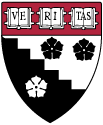Reflections on Scratch Educator Meetup in NYC: Thursday, April 28, 2011
- Login to post comments
Thanks to everyone who was able to join us last Thursday for our first on-the-road Scratch educator meetup in NYC! Here are some notes, reflections, and next steps...
0. Summary video of the meetup
1. Things we saw in Show & Tell
Videos of the Show & Tell presentations are available online in the resources section and include:
- Nancy Costa shared animated Aesop's Fables that were created in her 3rd-5th grade Technology Class.
- Lou Lahana aka Techbrarian presented his curriculum for helping elementary and middle school students express social issues through Scratch projects and blogging.
- LeRhonda Greats showed us the first sprite she ever created and animated in Scratch. She talked about what was challenging about the project and how she used a clever costume technique to make her sprite dance.
- Susan Ettenheim and Francisco Cervantes presented Public Service Announcements (PSA) created by students in Susan's HS Animation course. Susan asked the group for suggestions on sharing student work and collaborating with other educators on her Scratch Cards project.
- David Wells presented his very first Scratch project, which he created at the NYC Meetup during a hands-on session. The project was based on the Interactive Collage activity, following an architecture theme.
- Donald Dagen, a volunteer educator for an after-school program, presented a 5th grade girl's Pacman project.
2. For the beginners
We had about an hour of hands-on time with Scratch. The suggested activity was to create an interactive collage, but several different paths were explored including trying out the Scratch card activities and checking out the Scratch website.
If this was your first experience with Scratch (or you want a refresher), here are some other resources that you might want to check out, to support your further explorations with Scratch.
- Getting started guide - How to make a first Scratch project.
- Design studio activities - 16 suggestions for design activities, such as making a project that includes the "random" block or making a project that has an orange square and purple circle.
- Creative computing workshop - This is a sequence of activities for getting started with Scratch. Any feedback on the sequence and activities would be appreciated. How could it be changed to be more useful?
3. Breakouts
Mitch wrote a brief description of the breakout session he led around "challenges" (check out the activity and a demonstration video):
In the breakout group, which had about 10 people, we divided time between hands-on "challenges" and discussion. The challenges were designed to explore different ways of adding interactivity to a Scratch project. For example, one challenge was: "Whenever a sprite hears a sound, it changes color." Everyone in the breakout created scripts in response to the challenge, then compared the different approaches used by different people. We discussed how the challenges could be used in the classroom -- and, more broadly, what types of activities are best for connecting with students' interests, while also helping them learn important computational ideas.
Cameron wrote a brief description of the breakout session he led around "computational thinking":
We had an engaging discussion of the various concepts and principles that comprise CT. To guide our discussion, I utilized the Big Ideas of Computational Thinking outlined by the Scratch Team. To shape our discussion and examine CT from both a theoretical and applied perspective, we addressed the first two of three CT Big Ideas, concepts, and practices. In terms of CT concepts, we examined how Scratch provides useful concepts that are directly applicable to computer programming and that these blocks (such as loop, event, operator, and variable blocks) generate an accessible entry point for thinking about CT with Scratch. Next, we discussed the various CT practices. These four practices, incremental/iterative, testing/debugging, reusing/remixing, and abstracting/modularizing, are ideas that can be both applied to computer programming and core content areas within the primary and secondary school setting.
A third breakout session focused on a discussion of video games.
4. Future events
There are lots of ways to keep participating in ScratchEd professional development:
- Ask questions and find resources here on ScratchEd
- Attend Columbia's Scratch Day event on May 14
- Come to the monthly meetups at MIT - Next month's meetup is a bit different, as it coincides with Scratch Day. Registration for Scratch Day MIT opens tomorrow morning. Susan Ettenheim is seeing who might be interested in arranging a bus to the event
- Attend the monthly webinars - The next webinar is all about computational perspectives and is taking place on Monday, April 23 at 7pm EST.
- Participate in a workshop - We'll be hosting a three-day Scratch workshop at MIT this summer. For more information about the workshop and how to apply, check out http://cs4hs.media.mit.edu/
Thanks again for attending the event last week. We look forward to seeing you on ScratchEd!
K


Karen et al, thanks so much for a great event!